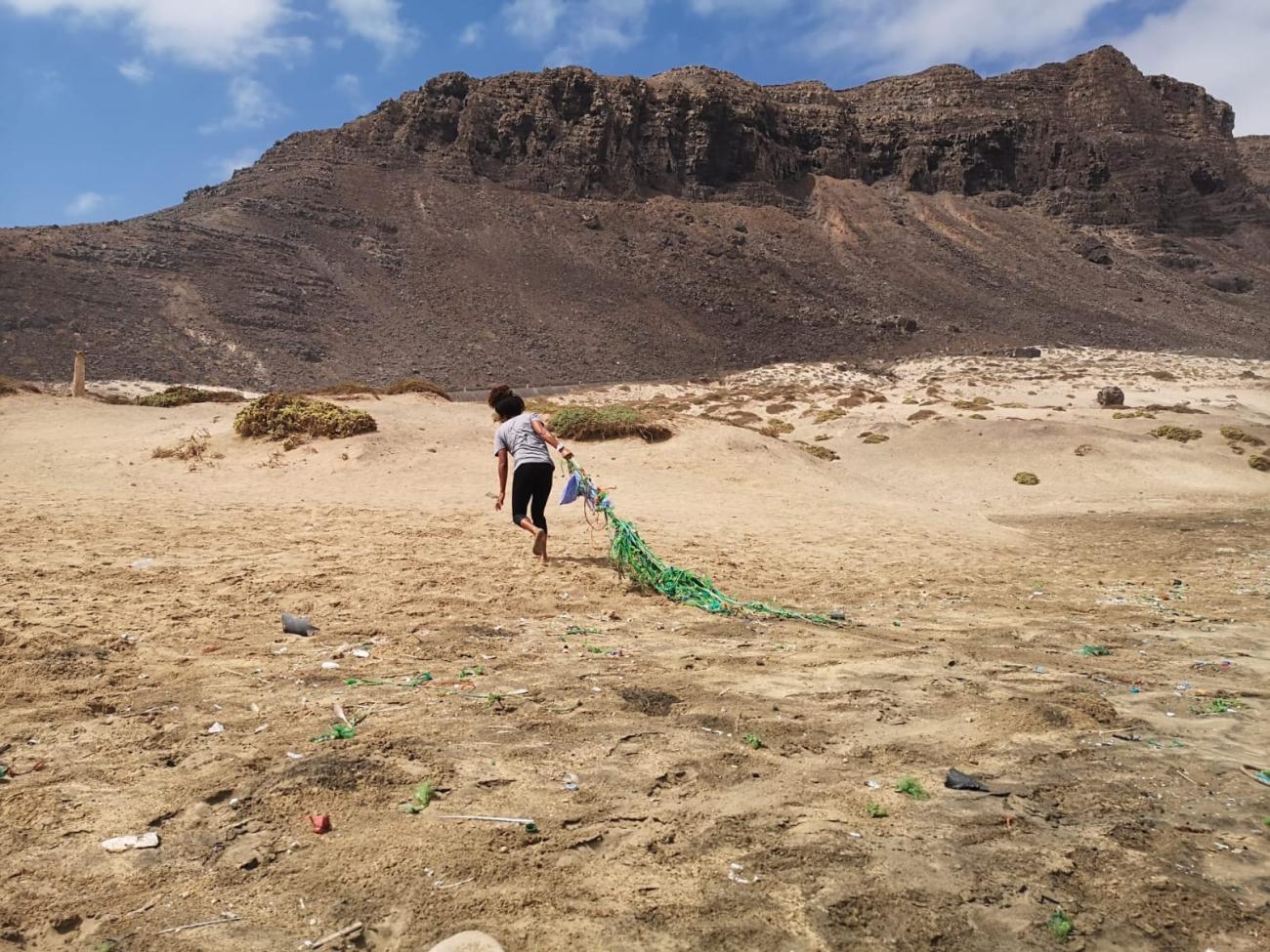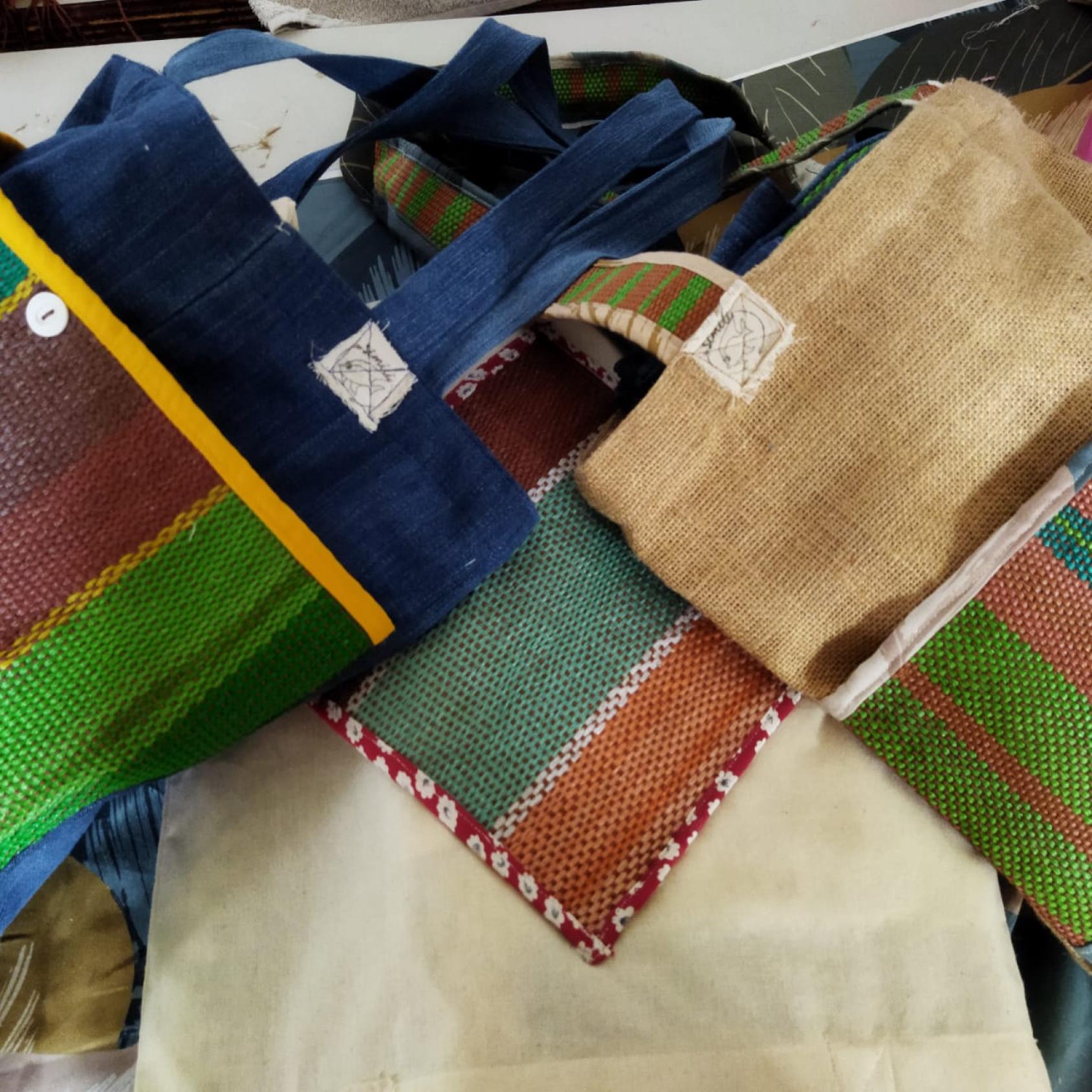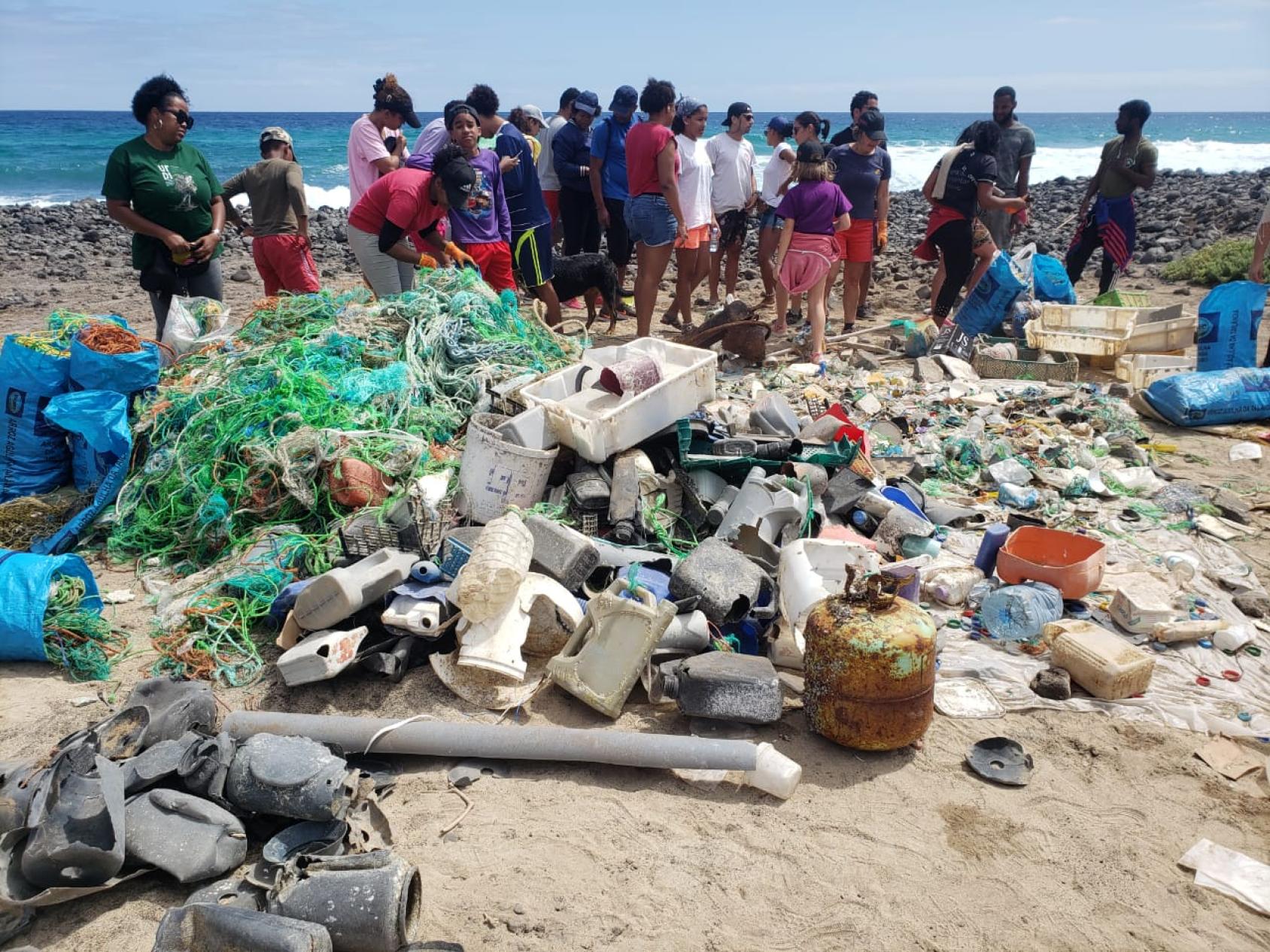Island Innovation: Cabo Verde turning Trash into Treasures

Small Island Developing States (SIDS) like Cabo Verde face unique challenges in their pursuit of sustainable development. However, their vibrant blue economies offer immense potential for growth and innovation. The United Nations, under the guidance of Resident Coordinator Patricia Portela de Souza, has mobilized a collaborative effort to support Cabo Verde’s path towards sustainable development. This coordinated approach leverages funding from the Joint SDG Fund and involves various UN agencies working together to create a thriving environment for innovation and investment in Cabo Verde's blue economy.
Transforming challenges into opportunities
One example of this collaborative effort is the SIMILI project in the coastal community of Salamansa. Led by environmental activists Débora Roberto and Helena Moscoso, SIMILI transforms discarded fishing nets into beautiful fabrics. These handcrafted items find new buyers, extending the life cycle of the materials. Any waste generated during production is minimized and recycled whenever possible. Ultimately, the goal is to create a closed-loop system where waste becomes a valuable resource, the environment is protected, and the community benefits from new skills and economic opportunities.

Resident Coordinator Patricia Portela de Souza highlights the strategic importance of projects like SIMILI: "Our responsibility is to foster a strategic approach, ensuring projects like SIMILI are not just successful, but contribute meaningfully to Cabo Verde's long-term development vision." This strategic leadership has been evident in SIMILI's success, as the Resident Coordinator's Office (RCO) brought together different UN agencies to create a groundbreaking, multi-sector approach. This approach addresses the interconnected challenges of food systems and climate change, critical areas for achieving the Sustainable Development Goals (SDGs).
Similarly, founder Ms. Roberto emphasizes the project's ambition: "At present, the idea is to develop a new business plan, to know how to better account for our products, strategies to expand the business and to negotiate with possible financiers." Their vision includes creating a self-sustaining structure that allows them to train and create more jobs, all while working on other projects with an environmental and social focus.
The SIMILI project stands as a testament to the power of strategic collaboration and its potential to empower SIDS to address their challenges and harness the full potential of their unique resources. As Ms. de Souza notes, "The community's response to SIMILI has been incredibly heartening. They see it as a beacon of hope, not just for the environment, but for their own futures."
Collaboration for sustainable solutions
The UN system's strength lies in its ability to bring together a wide range of expertise. Through the RCO, UN agencies are collaborating to build a sustainable and interconnected blue economy in Cabo Verde. The Food and Agriculture Organization (FAO) and UN Industrial Development Organization (UNIDO) provide technical expertise and guidance to young entrepreneurs, while jointly developing an integrated strategy to further strengthen local associations and individual entrepreneurs. The United Nations Development Programme (UNDP) has launched the Blue Bonds initiative to establish a sustainable micro-credit mechanism for local micro-businesses, fostering financial inclusion and growth. Meanwhile, the International Organization for Migration (IOM) is bolstering the Cape Verdean Diaspora National Programme, including the Diaspora Investor Space, to connect diaspora investors with local entrepreneurs and mobilize crucial funding. This coordinated, multi-pronged approach, spearheaded by the strategic vision of the RC, ensures that the UN's efforts effectively address the diverse needs of Cabo Verde's blue economy, fostering a holistic and sustainable path towards growth and prosperity.

By fostering innovation, collaboration, and a strategic vision, Cabo Verde is charting a course towards a sustainable future that protects its environment, empowers its communities, and unlocks economic opportunities. Cabo Verde's vibrant blue economy, with its focus on innovation and waste reduction epitomizes the potential of SIDS to transition towards a sustainable future. By harnessing their vast ocean resources responsibly, SIDS can create new industries and jobs, while protecting the delicate marine ecosystems that sustain them. This not only benefits the environment and local communities, but also contributes to global efforts to combat climate change and ensure food security. The collaborative efforts of the UN system and the Cabo Verdean government demonstrate that, through strategic partnerships and a shared commitment to sustainability, SIDS can build a thriving blue economy that benefits both people and the planet.
The upcoming 4th International Conference on Small Island Developing States offers a critical opportunity to explore the unique challenges SIDS face, but also to celebrate their solutions and potential. Resident Coordinators, with their in-depth understanding of local needs and resources, are instrumental in translating this knowledge into action.
To learn more about the work of the UN in Cabo Verde visit caboverde.un.org













